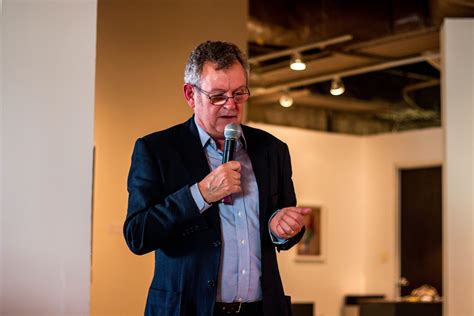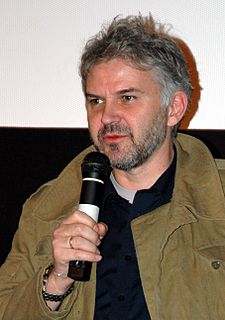A Quote by Richard F. Thomas
Bob Dylan tells interviewers what he wants to tell them, not what they necessarily want to know. His responses are really part of the art, and often have a relationship to the songs that have just come out or are about to come out.
Related Quotes
A brilliant 1989 album, Oh Mercy; some career retrospectives; and two albums of American folk songs, with just Bob Dylan and his guitar and harmonica. All that culminated in the Grammy-winning comeback album, Time Out of Mind (1997). Once again, just as Dylan seemed to be out of it, he was back at the top of his game.
My favorite Bob Dylan record is the very first one where he sings one Bob Dylan song and the rest of them are his interpretations of the Dust Bowl-era folk songs, or even going back as far as the mass influx of people coming into the U.S. during the gold rush. His interpretations of those songs are incredible.
I'm also a big Bob Dylan fan. The songs on The Freewheelin' Bob Dylan - which is one of his best early albums - they grow out of some of his difficulties with Suze Rotolo, and "Hard Rain," people say it had to do with the Cuban missile crisis - probably not. He denied it. I believe him, but it certainly had to do with the time.
I had to first convince them [prostitutes] that I wasn't a journalist who would yet again put out a notion about them they wouldn't necessarily care for or who would victimize them. You know, journalists come and go. If they come twice, it's a lot. But I come 10 times and hang out with them and share stuff. If you connect with someone just once, that's something. But if you can connect twice, that's something else.
Sometimes it's not catastrophic. Sometimes you only come to the bottom of your coffee cup. Sometimes you have a good day. No one wants to know. No one wants to tell you about theirs either. You might somehow take it. Turn it against them. See the flaw. You always tell them the whole thing sucks. It keeps you alive. They figure if you're out there having a rotten time, everything's fine and you're doing your part. No one will ever try to take your bad times away from you but they'll come swarming for your happiness.
Along with a lot of other things, becoming a Bob Dylan fan made me a writer. I was never interested in figuring out what the songs meant. I was interested in figuring out my response to them, and other people's responses. I wanted to get closer to the music than I could by listening to it - I wanted to get inside of it, behind it, and writing about it through it, inside of it, behind it, was my way of doing that.
I write songs for myself, songs come out of me, I get enjoyment out of it. Basically, that's it - I get enjoyment out of my songs, I know they're good songs, and know that the people around me who I respect are all getting up on these tunes, and the feedback is really good, so that's it. There are people who will receive them, and don't receive them. Not in a spiritual sense, but in a commercial sense - do these songs treat people, and so far they're working.
I won't forget those kind of things, but I just want to write them down and look at them. It's almost like when things like music come out and you're listening to a song and you have experiences with art or phenomena that supersede your simple relationship with them as just a piece of art. They're more than that. That's just what those quote are for me. They're big, they're important.
I thought that the R&B / Hip-Hop world really hasn't been explored on film and there's some issues that we're going through right now. It's in a very dangerous place , for women especially, both in terms of the songs that men are singing about. You know, R&B used to be a safe place for women and now it just seems like the songs coming out are so angry but also what women have to come out with. You have to get noticed. You see, it's like a script to follow. You come out hyper sexualized but what happens when you can't pull back from that. That's not authentic to yourself.



































